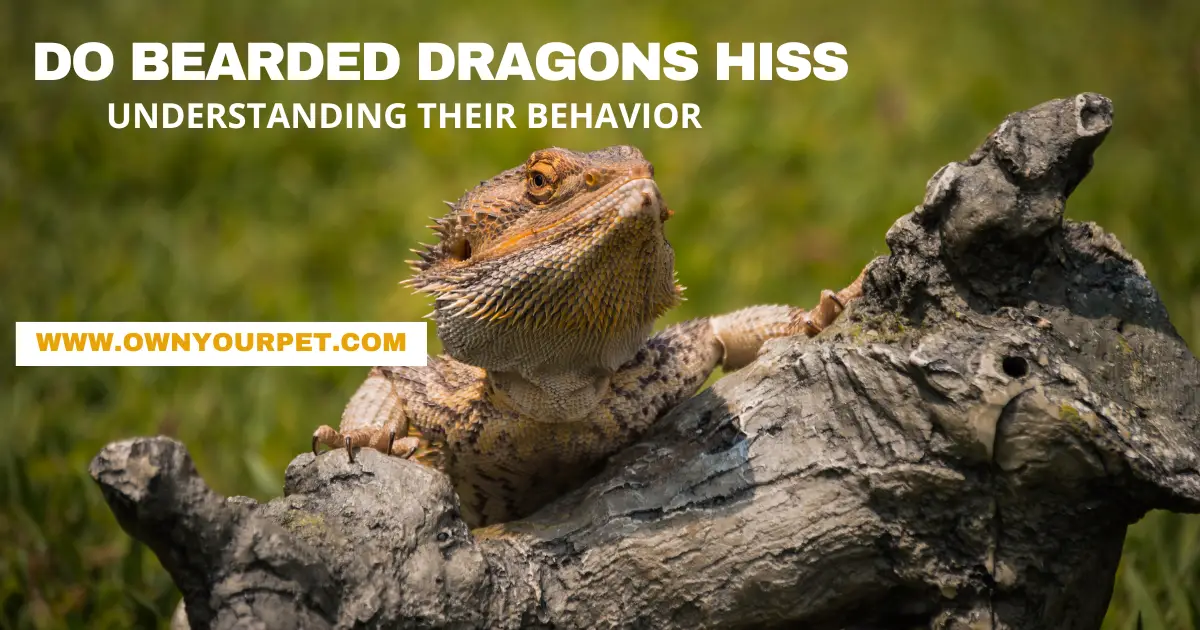Welcome to the wild world of lovable Bearded Dragons! If you’re a pet enthusiast or a proud owner of these fascinating creatures, you’ve likely found yourself asking, “Do Bearded Dragons Hiss?”
Well, you’re in the right place. In this article, we’re going to delve into the captivating behaviors of Bearded Dragons, with a special focus on hissing. Is it a sign of aggression, fear, or something else entirely? Understanding these behaviors is key to ensuring a happy and healthy environment for your scaly friend.
So, buckle up and prepare for a journey into the world of Bearded Dragons. By the end of this article, you’ll have a deeper understanding of why they hiss and how to interpret this and other behaviors. Let’s get started!
Q: Why is my Bearded Dragon displaying a black beard and hissing?
A: Black beard and hissing are common Bearded Dragon Behaviors and can be caused by various factors. These include territorial displays, Aggressive Beardie, aggression towards other animals, missing the previous owner, or feeling threatened.
It’s essential to observe their environment for potential triggers such as glass surfing, aggressive behavior, or encounters with wild or dominant animals. Additionally, ensure the temperature in Bearded Dragon Tank is optimal using a digital thermometer and provide a suitable habitat to reduce stress.
If you notice persistent aggression, Bearded Dragon Bites, or concerning behaviors in your Pet Dragons, consulting with a reptile expert can provide guidance and support.
Do Bearded Dragons Hiss? Ultimate Guide
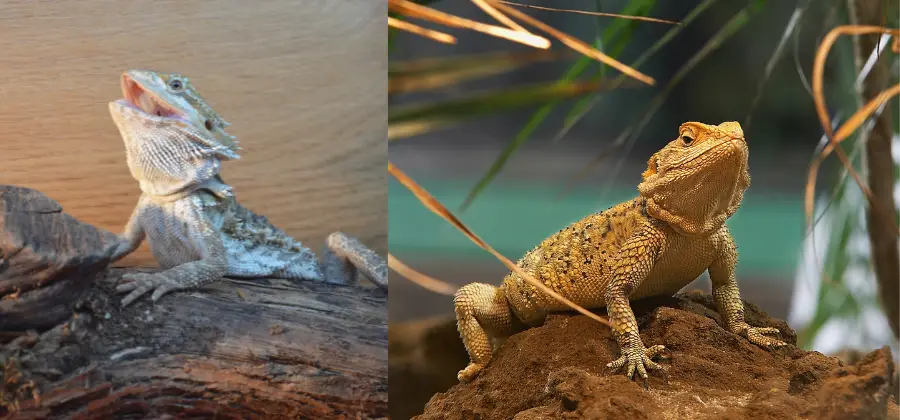
Bearded dragons are fascinating reptiles that captivate the attention of reptile enthusiasts and pet owners alike. These friendly and docile creatures have a range of behaviors that allow them to communicate their emotions, intentions, and needs. One of the intriguing behaviors exhibited by bearded dragons is hissing.
When bearded dragons hiss, they do so as a form of communication, typically in response to a perceived threat or during territorial disputes. Although it is not common for these gentle creatures to display aggressive behavior, hissing serves as a warning sign to potential predators or other intruders.
In such situations, bearded dragons may also puff up their beards, extend their frills, and even lunge with their mouths open, showcasing their discomfort and readiness for action.
Understanding these behaviors and recognizing the circumstances under which bearded dragons hiss can help pet owners and reptile enthusiasts provide the proper care, environment, and social interactions necessary for the well-being and happiness of these enchanting creatures. As a bearded dragon owner, paying close attention to such signals will enable you to respond appropriately and ensure your scaly friend feels safe and comfortable in their environment.
Why Do Bearded Dragons Hiss
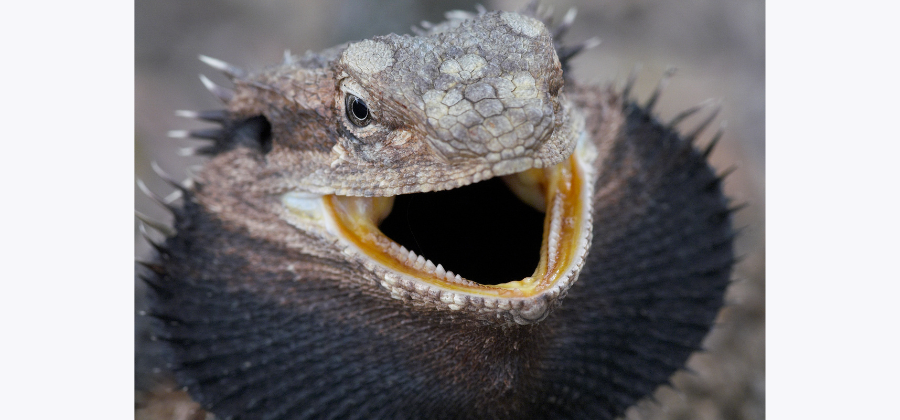
Feeling Threatened
Bearded dragons may hiss when they feel threatened or scared by a perceived predator, such as dogs, cats, or other household pets. Hissing serves as a warning to the potential intruder, signaling that the bearded dragon is on alert and ready to defend itself if necessary.
This behavior can often be observed when a bearded dragon is introduced to a new environment or encounters other animals for the first time.
Environment Related
A bearded dragon’s environment can have a significant influence on its behavior, including hissing. For example, an uncomfortable substrate or inadequate temperature and humidity levels may cause the dragon to feel stressed and hiss as a result.
Additionally, if the bearded dragon’s glass tank has a reflective surface, the dragon may perceive its reflection as an intruder and feel compelled to hiss as a warning.
Stress
Stress is a common cause of hissing in bearded dragons. Factors contributing to stress may include a new environment, improper living conditions, or anxiety due to their surroundings.
It is essential for owners to monitor their bearded dragon’s stress levels and adjust their living conditions accordingly to ensure the animal feels comfortable and safe.
Other Reasons
Aside from feeling threatened, environmental factors, and stress, there are other reasons bearded dragons might hiss. For example, illness or discomfort may cause a bearded dragon to hiss, as they could be feeling vulnerable.
Furthermore, bearded dragons may also hiss during their hibernation cycle, called brumation, as this is a time when their body undergoes various changes, and they may be more sensitive. Lastly, some bearded dragons may hiss when they are about to shed their skin, as this process can be uncomfortable for them.
In conclusion, it’s important for bearded dragon owners to understand the reasons behind their pet’s hissing to create a comfortable living environment and address any underlying issues promptly to ensure their health and happiness.
Signs of Aggression and Stress
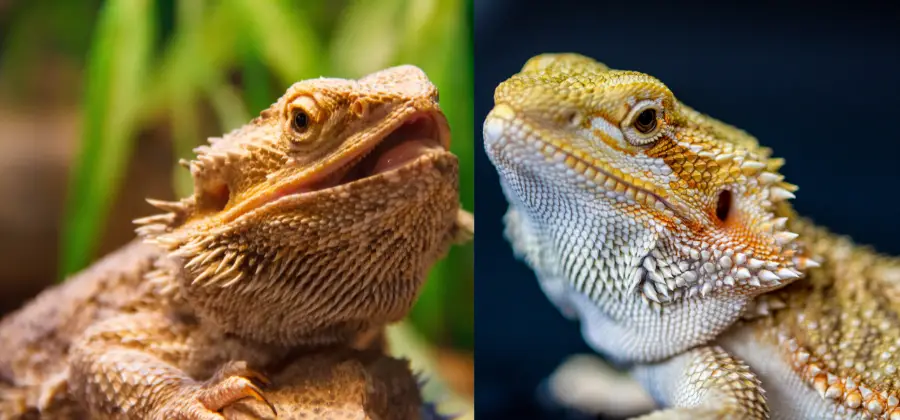
Body Language
Bearded dragons use various body language cues to communicate their emotions. These reptiles may display signs of stress or aggression when feeling threatened, uncomfortable, or disturbed.
They do not have vocal cords, but they can still exhibit some sounds, such as the occasional hiss. Hissing is often a sign of distress or discomfort and can be interpreted as a warning signal to other animals or humans to back off.
Bearded dragons are known for their docility and rarely display aggression, making hissing an essential cue for owners to recognize and address potential issues in their pet’s environment or health.
Puffing Up
Another sign that bearded dragons may exhibit when feeling stressed or threatened is puffing up their beard. This behavior serves two purposes: making them appear larger and more intimidating to potential threats, and helping regulate their body temperature.
During times of stress or aggression, a bearded dragon may also darken its skin color, especially around the beard, making them appear more threatening to other animals.
Territorial Behavior
Although bearded dragons are generally solitary animals, they may still exhibit territorial behaviors, especially among male bearded dragons. Territorial behavior may include posturing, such as extending their arms and standing tall, head bobbing, and even biting.
In some cases, when two males are housed too close together, their aggression can escalate, leading to injury and battle for dominance.
It’s essential for bearded dragon owners to provide their pets with a spacious and comfortable habitat, allowing them some privacy and reducing stress. By keeping an eye on these signs of aggression and stress and addressing any underlying issues, bearded dragon owners can ensure a happy, healthy, and harmonious environment for their beloved reptile pets.
Hissing and Health Issues
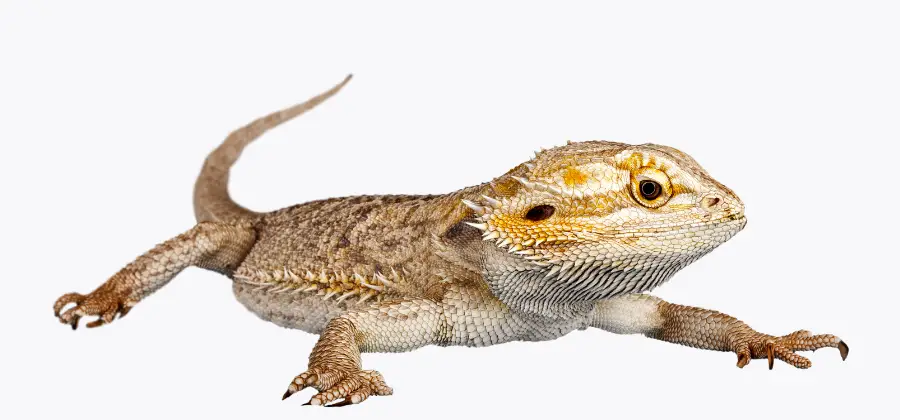
Respiratory Infections
Bearded dragons may hiss due to respiratory infections. Various factors, such as improper temperature or humidity levels in the enclosure, can cause respiratory infections in bearded dragons. Symptoms of respiratory infection may include difficulty breathing, discharge from the nostrils or mouth, and wheezing or hissing noises.
If you suspect your bearded dragon has a respiratory infection, it’s essential to consult a veterinarian experienced in treating reptiles. They may prescribe medication and suggest changes to the enclosure, food, or even bathing practices to help your bearded dragon recover.
Injury or Illness
Hissing in bearded dragons can also be a sign of injury or illness. They may hiss when feeling threatened or in pain. Some common causes of injury in bearded dragons include rough handling by owners, encounters with other animals, or accidents in the enclosure. It’s essential to regularly inspect your bearded dragon’s body for any signs of injury.
In cases of illness, bearded dragons can exhibit symptoms such as lethargy, loss of appetite, and changes in their behavior, including hissing. Some common illnesses include parasites, infections, or issues related to shedding.
Ensure you provide a clean and properly maintained environment for your bearded dragon, with the appropriate temperature, humidity levels, and hiding places. Offering a nutritious diet that consists of a variety of insects, plants, and occasional treats can also contribute to their overall health.
If your bearded dragon continues to hiss or display other concerning signs, it’s crucial to consult a veterinarian experienced with reptiles. They can diagnose any underlying issues and provide appropriate treatment to help your pet recover.
Calming Down a Hissing Bearded Dragon
If your bearded dragon is hissing due to feeling threatened or defensive, try the following strategies to help them calm down:
- Place your bearded dragon in a separate, quiet area, away from other animals or sources of stress.
- Create a familiar environment by providing hiding places and decorations from their main enclosure.
- Avoid sudden movements or loud noises, as this can startle them further.
- Allow some time for your bearded dragon to adjust to its new home or new owners before handling them.
- Observe your bearded dragon to identify any triggers that cause stress, such as seeing their reflection in the enclosure or the presence of other animals.
By following these tips, you can help soothe a hissing bearded dragon and create a more comfortable environment for them to thrive. Remember always to monitor your bearded dragon’s health and consult a veterinarian if you have any concerns.
Watch this video if your pet dragon hiss:
Communicating Through Sounds
Bearded dragons have a variety of vocalizations and sound that they use to communicate with each other and their owners. These sounds can sometimes be an indicator of their emotions, needs, or reactions to certain situations. In this section, we will explore some of these sounds and their possible meanings.
Squeaks and Chirps
Bearded dragons may occasionally squeak or chirp as a means of communication. These sounds can be a sign of attention-seeking or a response to something in their environment. For example, they might chirp upon seeing their own reflection or when they want their owner’s attention for feeding or playing.
It is also possible that they chirp to adjust their hiding spots or simply because they are bored. Be sure to observe your bearded dragon’s behavior in conjunction with these sounds to understand their needs better.
Purring and Other Sounds
Bearded dragons can produce several other sounds, including purring, huffing, or even hissing. Purring is generally a sign of contentment and can occur during interactions like petting or when the lizard is at ease in its environment.
On the other hand, huffing or bearded dragon hissing can be a sign of stress or discomfort, often happening when they feel threatened or during mating season.
In some cases, bearded dragons may also emit sounds similar to burping or passing gas. This can be related to their digestion and is typically not a cause for concern. However, if the frequency of these sounds increases or is accompanied by other signs of discomfort, it might be a good idea to consult a veterinarian.
In conclusion, bearded dragon communication consists of various sounds, each with different meanings. As a bearded dragon owner, understanding these vocalizations will help you better interpret your pet’s needs and establish a stronger bond.
Tips to Reduce Hissing and Stress
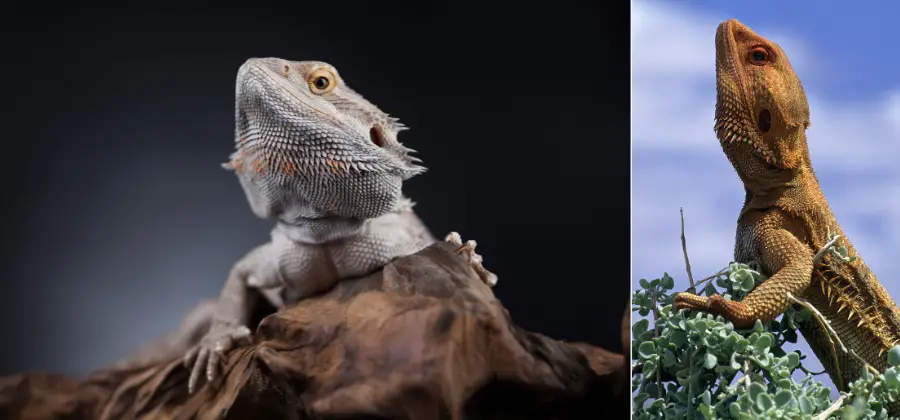
Improving the Habitat
A comfortable and well-designed habitat can significantly reduce stress in bearded dragons, in turn minimizing hissing and aggression. One crucial aspect of creating a suitable environment for your pet is providing multiple hiding spots. Reptiles, such as bearded dragons, need privacy to feel secure in their environment. Consider adding hides, caves, and hollow logs to the enclosure.
Another essential aspect of improving the habitat is the substrate. Choose a substrate that promotes natural behaviors and is easy to clean. You can also introduce habitat improvements like climbing branches, plants, and basking spots.
Finally, ensure your bearded dragon’s enclosure is adequately sized to prevent territorial aggression. Providing a larger space will give your pet plenty of room to move around, reducing stress and confrontational behavior.
Proper Handling and Bonding
Establishing trust through proper handling techniques and bonding is key to reducing stress in bearded dragons. When handling your pet, approach them slowly and gently, avoiding sudden movements that may startle or stress them. Gradually increase the time and frequency of handling sessions to build a strong bond with your bearded dragon.
Additionally, engaging in interactive activities such as hand-feeding insects and offering toys or distractions can help reduce stress and promote a stronger connection between you and your pet.
Monitoring Health and Diet
Maintaining your bearded dragon’s health is essential for its overall well-being, and a healthy dragon is less likely to display stress-related hissing behaviors. Regularly check your pet for signs of illness and consult a veterinarian specializing in reptiles if any issues arise.
A well-balanced diet plays a significant role in minimizing stress in bearded dragons. Offer a variety of insects, vegetables, and fruits to ensure they receive all necessary nutrients. Observe your pet’s eating habits closely and adjust the diet as needed to maintain optimal health. Water should be available at all times for proper hydration.
By following these guidelines, you’ll minimize hissing and stress in your bearded dragon, promoting a happy, healthy life for your beloved reptile companion.
Conclusion: Do Bearded Dragons Hiss
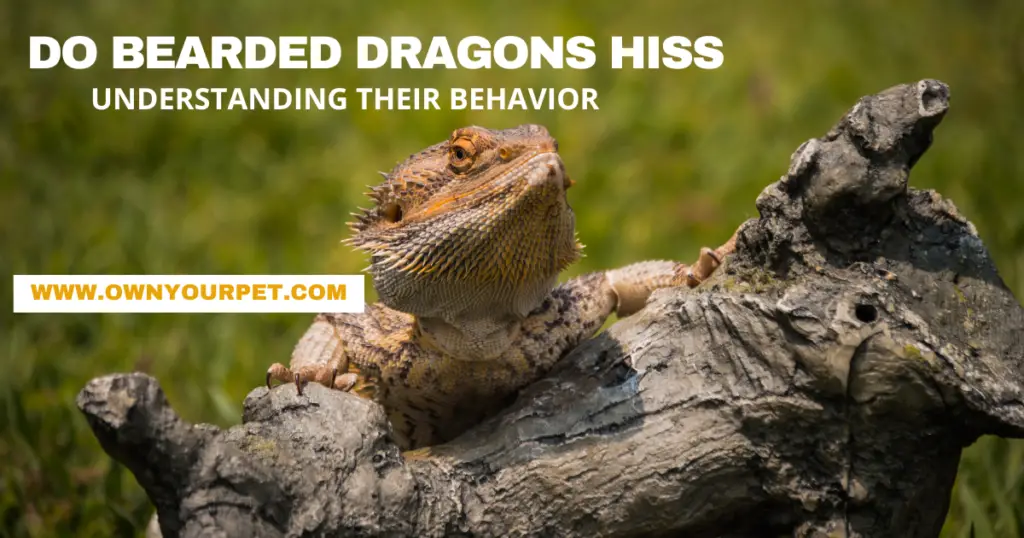
In conclusion, understanding the behaviors of Bearded Dragons, including black beard and hissing, is crucial for their well-being. While these actions can indicate signs of danger, impaction, or defensive modes, it’s essential to consider other factors such as bright lights, proper diet, and suitable habitat conditions.
Bearded Dragons are private creatures that may display a wide range of behaviors in different situations. Owners should pay attention to their body language, stress marks, or respiratory illnesses to ensure a comfortable and safe environment.
Regular vet check-ups, providing adequate UV light, maintaining proper temperature and humidity, and offering abundant, nutritious food are vital for their overall health.
Remember, each Bearded Dragon has its own unique desires and displays of behavior, so being a responsible keeper involves learning and adapting to their individual needs.
